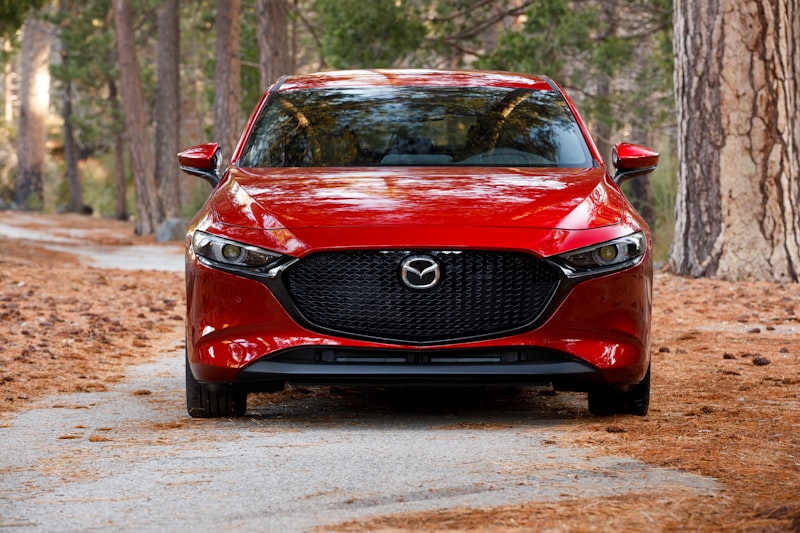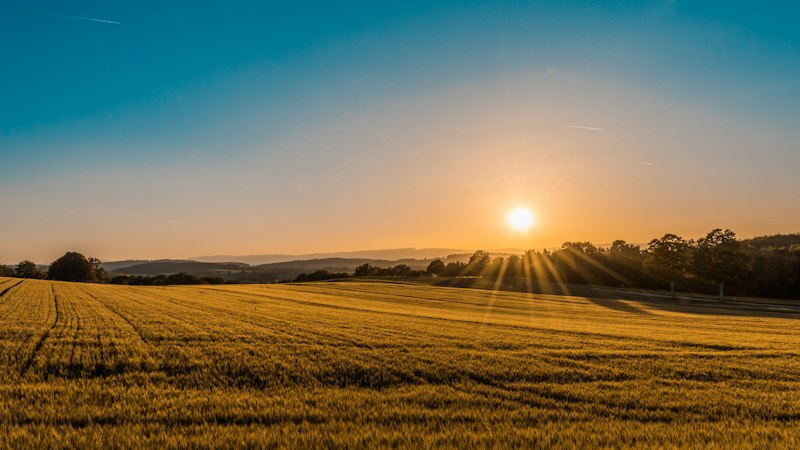When it comes to countries, there are various forms of government that exist around the world. One of the most common forms is a republic. But which country can be considered a republic? Let’s dive into this topic and explore the essence of a republic.
A republic is a type of government where the power lies in the hands of the people or their elected representatives. In simpler terms, it means that the citizens have a say in how their country is governed. The head of state in a republic is usually an elected president, rather than a hereditary monarch.
Many countries have adopted a republican form of government. One prominent example is the United States of America. Since its establishment, the U.S. has been a federal republic, with its citizens directly electing their president every four years. The American system of government prioritizes democratic principles and the protection of individual rights.
Another country that embraces a republican system is France. The French Republic operates under a semi-presidential system, where the president is the head of state and the prime minister is the head of government. The president is elected by the people and holds significant executive powers.
In Italy, the Italian Republic follows a parliamentary republic model. The president, who is elected by an electoral college, serves as a figurehead with limited powers, while the prime minister holds most of the executive authority.
Brazil, the largest country in South America, also functions as a federal republic. The president is the head of state and government, elected by popular vote for a fixed term.
These examples demonstrate how different countries embrace the republican form of government while adapting it to suit their unique circumstances and needs. By putting power in the hands of the people, these nations strive to uphold democratic ideals and promote citizen engagement.
Many countries worldwide identify as republics, where the citizens play an active role in shaping their nation’s governance. From the United States to France, Italy to Brazil, the republican form of government empowers individuals and fosters democratic decision-making. Understanding these distinctions helps us appreciate the diverse political landscape across the globe.
Global Shift: Which Country Will Be the Next Republic?
In a world constantly evolving, political landscapes undergo transformations that shape the course of nations. As we navigate the complexities of global governance, the question arises: which country will be the next to embrace a republic-style government? Let’s explore the possibilities and potential contenders for this anticipated global shift.
One country that has been at the center of this discussion is China. With its rapid economic growth and increasing global influence, China holds immense potential to transition into a republic. However, the intricacies of its political system, strongly rooted in communism, present significant challenges to such a transformation. While internal pressures for reform exist, the path towards a republic in China remains uncertain.
Turning our attention to Africa, Nigeria emerges as a compelling candidate for the next republic. With its vibrant democracy and large population, Nigeria has the potential to become a transformative force on the continent. However, persistent challenges such as corruption, ethnic tensions, and socioeconomic disparities threaten to hinder this transition. Nonetheless, Nigeria’s democratic institutions provide a solid foundation for aspiring to republic status.
Latin America also offers intriguing prospects. Brazil, known for its rich cultural heritage and democratic traditions, stands out as a potential contender. The country’s vast size and diverse population make it a consequential player on the global stage. Although Brazil faces political polarization and systemic issues, its resilient democracy and engaged citizenry could pave the way for a future republic.
Shifting our focus to Southeast Asia, Indonesia emerges as a noteworthy prospect for embracing a republic-style government. With its commitment to pluralism and democratic values, coupled with its rapidly growing economy, Indonesia possesses the ingredients necessary for such a transition. However, the road ahead may require navigating through regional dynamics and consolidating democratic institutions.
It is essential to acknowledge that predicting the exact country to become the next republic is challenging, as numerous factors contribute to such a shift. Political will, societal evolution, and economic stability all play pivotal roles in determining the direction a country may take. While China, Nigeria, Brazil, and Indonesia hold promise, only time will reveal which nation will embark on this momentous journey towards becoming the next republic.
As the world evolves, political systems undergo transformation. The question of which country will be the next republic sparks curiosity and anticipation. From China’s economic might to Nigeria’s democratic potential, Brazil’s cultural significance, and Indonesia’s commitment to pluralism, several nations exhibit qualities that make them contenders for this global shift. However, the complexities within each nation’s political landscape and socio-economic fabric will ultimately shape their destiny. The future awaits, poised to reveal the nation that will embrace the mantle of the next republic.
Unveiling National Transformations: Discovering the Current Republics Around the World
Are you ready to embark on a journey of discovery? Get ready to uncover the captivating world of national transformations as we delve into the current republics around the globe. From the bustling streets of thriving cities to the serene landscapes of majestic countryside, each republic holds its own unique story waiting to be unveiled.
Let’s begin our adventure by exploring the vibrant Republic of Singapore. Nestled in Southeast Asia, this tiny island nation has risen from humble beginnings to become a global economic powerhouse. With its awe-inspiring skyscrapers and lush green spaces, Singapore offers a harmonious blend of modernity and nature that leaves visitors spellbound.
Moving westward, we find ourselves in the vast expanse of the United States of America. This iconic republic, known as the land of opportunities, encompasses fifty states, each with its own distinct culture and landscape. From the dazzling lights of New York City to the breathtaking beauty of the Grand Canyon, America is a tapestry of dreams and aspirations.

Venturing further, we encounter the Federal Republic of Germany, nestled in the heart of Europe. Renowned for its precision engineering and rich cultural heritage, Germany stands tall as an epitome of efficiency and innovation. Whether you’re exploring the historic streets of Berlin or immersing yourself in the enchanting Bavarian Alps, Germany beckons with its charm and allure.
As we travel eastward, the vibrant Republic of South Africa comes into view. This diverse nation boasts a kaleidoscope of cultures, languages, and landscapes. From the bustling metropolis of Johannesburg to the breathtaking vistas of the Cape Winelands, South Africa captivates with its natural wonders and warm hospitality.
Our journey concludes in the Democratic Socialist Republic of Sri Lanka, an island paradise nestled in the Indian Ocean. With its golden beaches, ancient ruins, and lush tea plantations, Sri Lanka is a treasure trove of natural and cultural marvels. Explore the ancient city of Anuradhapura, traverse the misty hills of Nuwara Eliya, or simply relax on the sun-kissed shores of Arugam Bay.
Unveiling these national transformations is like unraveling chapters of a captivating novel. Each republic weaves its own tale with distinct characters and landscapes, drawing us into their enchanting narratives. So why wait? Pack your bags, embark on this journey of discovery, and immerse yourself in the beauty and wonder of the current republics around the world. Adventure awaits!
Republic Rivalry: Countries Vying for the Title of the Most Democratic Nation
When it comes to democracy, nations around the world engage in a spirited rivalry to claim the coveted title of the most democratic nation. It’s like an intense competition where countries strive to showcase their commitment to the principles of freedom, equality, and participation. But what exactly makes a country deserving of this prestigious accolade?
One crucial aspect that distinguishes a truly democratic nation is the presence of free and fair elections. Citizens have the power to choose their leaders through a transparent electoral process. These elections serve as a litmus test for democracy, ensuring that power is derived from the people and that their voices are heard.
An equally important factor is the protection of individual rights and civil liberties. A democratic nation upholds the fundamental freedoms of its citizens, including freedom of speech, assembly, and religion. It creates an environment where individuals can express their opinions without fear of repression, fostering a vibrant and diverse society.
Furthermore, an effective system of checks and balances is crucial in maintaining a democratic society. The separation of powers among the executive, legislative, and judicial branches ensures that no single entity dominates the decision-making process. This system prevents the abuse of power and promotes accountability, guaranteeing that governance remains fair and just.
In addition to these core principles, a democratic nation must prioritize the rule of law. The legal framework should be robust, treating all citizens equally and impartially. Everyone should be subject to the same laws, regardless of their social status or influence. This ensures that justice prevails and that no individual or group is above the law.
As countries vie for the title of the most democratic nation, they must continuously strive to improve their democratic institutions and practices. Through ongoing reforms, open dialogue, and citizen engagement, nations can strengthen their democratic fabric and set an example for others to follow.
The Rise of New Republics: Exploring Emerging Democracies Worldwide
The world is witnessing an extraordinary phenomenon—the rise of new republics. These emerging democracies are challenging the established order and reshaping global politics. From distant corners of the globe to bustling urban centers, countries are embracing the principles of democracy, freedom, and self-governance.
But what exactly is driving this surge of new republics? Is it the desire for liberty and equality? Or perhaps the longing for a voice in decision-making processes? The truth is, it’s a combination of multiple factors. Let’s delve deeper into the forces behind the rise of these exciting emerging democracies.
One key catalyst is the growing discontent with autocratic rule. People are demanding more transparency, accountability, and participation in their governments. They yearn for leaders who prioritize their needs and aspirations. As a result, citizens are banding together, utilizing social media platforms, and raising their voices for change.
Another important factor is the power of technology. The digital age has connected the world like never before. Information flows freely, crossing borders and inspiring individuals to strive for better governance. Social media has become a powerful tool for organizing protests, sharing ideas, and mobilizing support, leading to transformative movements across continents.

Furthermore, economic development plays a significant role in the rise of new republics. As nations experience growth and prosperity, citizens become more educated and empowered. They demand political systems that align with their newfound aspirations. Economic progress fuels democratic ideals, reinforcing the belief that a free society fosters innovation, entrepreneurship, and overall well-being.
These emerging democracies offer hope and inspiration to millions around the world. They demonstrate that change is possible and that ordinary people can shape their destinies. By embracing diversity, inclusivity, and the rule of law, these nations are setting an example for others to follow.
The rise of new republics represents a seismic shift in global politics. Driven by a thirst for freedom, empowered by technology, and propelled by economic progress, these emerging democracies are redefining the future. As we witness their journey, one thing is certain—the world will never be the same again.